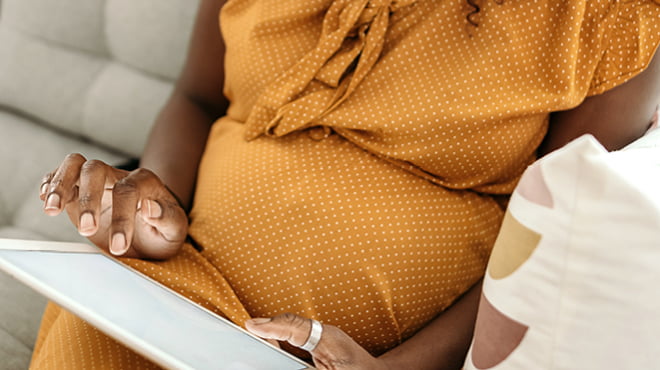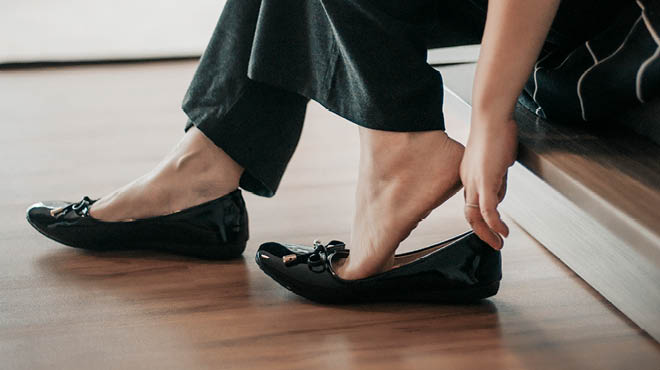
Prenatal Care
- Overview
- Preparing for Pregnancy
- Choose a Prenatal Care Provider
- Prenatal Visits
- Learn About the Birth Center
- Healthy Choices
- For Dads & Partners
Recent Posts
Getting Ready for Baby
After you have chosen the provider who will care for you during pregnancy, you should arrange prenatal appointments and attend childbirth education and parenting classes through District One Hospital.
Here are a few other things you should plan before baby arrives:
Choose a doctor for baby
OB-GYNs and most nurse midwives do not provide care for children. Because of this, you will need to choose a provider for your baby. Choose from Pediatric and Adolescent Medicine or Family Medicine providers in Faribault.
Consider your communication style. As a new parent, you should be able to ask anything ― no matter how trivial you may feel it is ― and get the information you need. It's important that you feel comfortable with your healthcare provider. By thinking about this during your pregnancy, you can decide by the time your baby has arrived.
What is a pediatrician?
A pediatrician is a specialist with a medical school degree and completed the residency training solely in pediatrics. They have the skills to treat a broad range of childhood illnesses from the most serious of disease to everyday problems. Some pediatricians also have received further specialized training in a specific area, such as allergy, neurology or developmental issues. Many people appreciate knowing that their baby's doctor has advanced training in childhood illnesses and development.
What is a family physician?
A family physician is a specialist with a four-year medical school degree with three additional years of residency training in family medicine, which encompasses all major medical areas. Family physicians focus on whole-family relationships and caring for people of all ages. Many people appreciate knowing that their family doctor also can care for their new baby and everyone else in the
family, and has a complete picture of individual needs and the family situation. If you would like a family physician to provide care for your new child, discuss this with him or her early in your pregnancy.
What is an associate provider?
An associate provider could be an advanced-practice provider, such as a nurse practitioner, family nurse practitioner or physician assistant. While each of these provider's training programs differs, an associate provider has received advanced, detailed training in the care of infants and children. They provide primary care for children, including ordering and interpreting diagnostic and lab tests, and prescribing medication. Their focus is often on holistic care tailored to each person. As with family physicians, associate providers also focus on whole-family relationships. Associate providers are available in Pediatric and Adolescent Medicine or Family Medicine.
What you should bring to the hospital
Being prepared for your stay at the hospital will make it a more comfortable experience for you, as well as your support person and newborn, and the baby's sibling(s).
Here are some items that you should consider bringing with you:
For mom
- Your birth plan
- Labor helpers
- Lip balm
- Toothbrush, toothpaste, floss and mouthwash
- Brush, comb and elastic hair bands
- Glasses and case, contact solution and case, if needed
- Toiletries, including cosmetics, deodorant, hair dryer, hair care items, shampoo and conditioner
- Massage aids, including tennis balls; massagers; and lotion, oil or cornstarch/powder
- Activities to pass the time, such as a book or deck of cards, in case labor is slow
- Things you find relaxing, such as music, pleasant smells like essential oils and a visual
- Tub pillow
- Personal pillows
- Two supportive bras (nursing bras, if you're nursing)
- Nightgown (or wear hospital gowns) with front opening, if you're nursing
- Set of clothes to wear home, such as sweat pants or a mid-pregnancy maternity outfit
- Nonskid slippers or socks, and a robe
- Electronic devices, including cellphones and chargers, cameras and computing devices. Mayo Clinic Health System offers Wi-Fi in many areas of the hospital. Device use within the birth center is governed by hospital policy and terms of use. Speak to your provider or the nurse in charge if you have questions or concerns about your electronic devices
- Insurance information
For support person
- Toothbrush, toothpaste and mouthwash
- Gum or breath mints
- Deodorant
- Changes of clothes
- Watch with a second hand for timing contractions
- Swimsuit, if desired, for water-related pain management
- Snacks
- Activities to pass the time: book or magazine (in case mom sleeps and the support person can't)
For baby
- Baby book.
- One sleeper or outfit for the trip home, and hat and cold weather gear, if needed. Hospital does not provide clothing or blankets for children going home
- Receiving or warm blanket, if needed
- Car seat, this is required by law
For siblings
- Small gift from baby
- Toys, books or coloring crayons
- Snacks
- Gifts for baby
Car seat safety
The best protection for your child in a vehicle crash is a properly secured child safety seat. However, buying and installing the correct seat for your child can be confusing. Unfortunately, over 80 percent of car seats are not installed correctly. Review the information below to learn some of the simple steps that you can do to help save your child's life.
Here are general car seat safety resources and state guidelines:
- American Academy of Pediatrics
- Iowa Car Seat Safety
- Minnesota Car Seat Safety
- Minnesota Department of Public Safety
- Safercar.gov
Organizations such as local health departments, family resource centers and car dealerships may offer free car seat checks by trained technicians. Call a location near you for more information.


